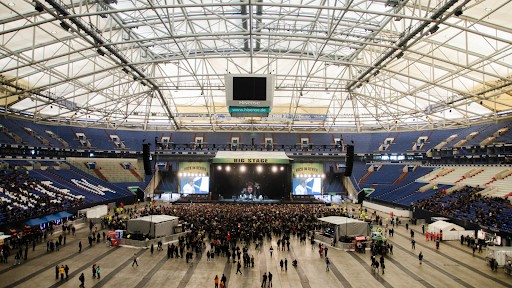The Day I Realized Sports Marketing Wasn’t Just About Athletes
Okay, confession time: I once thought sports marketing was just about signing famous athletes to wear branded sneakers. Like, toss a logo on a jersey and call it a day. That illusion shattered during a college project when I had to build a fictional campaign for a women’s roller derby team. Suddenly, I was juggling sponsorship deals, local fan engagement, merch strategy, and social media heat.
That’s when it hit me—what is sports marketing isn’t just a buzzword. It’s a whole machine that powers billion-dollar industries, from your neighborhood soccer club to the Super Bowl halftime show.
So if you’ve ever wondered who turns games into cultural moments—or how brands become part of the action—you’re in the right stadium.
What Is the Meaning of Sports Marketing, Really?
Sports marketing is where business meets fandom—and turns passion into profit. At its core, it’s the practice of promoting teams, athletes, events, or products using sports as the driver.
But it’s not just slapping ads on stadium walls. It’s strategic storytelling. It’s understanding how fans tick and creating campaigns that make people feel something—excitement, loyalty, nostalgia, FOMO.
Whether it’s selling tickets, building a brand around a league, or launching a new energy drink with a skateboarding icon—sports marketing is about connecting emotionally through competition and community.
What Does a Person in Sports Marketing Do All Day?

So what does a sports marketer actually do? The short answer: a little bit of everything. Think of them as the hype squad behind the scenes, making sure every aspect of the brand experience—from the email blast to the in-stadium jumbotron—is on point.
Depending on the role, a person in sports marketing might:
- Negotiate sponsorships and brand deals
- Manage social media during live events
- Analyze ticket sales and fan behavior
- Launch campaigns to drive merchandise revenue
- Coordinate with athletes and influencers for promotions
- Build loyalty programs or fan clubs
- Craft content that keeps fans engaged year-round
It’s part psychology, part strategy, and part hustle. And honestly, no two days are the same—which is why I love it.
What Are the 4 Ps of Sports Marketing?

Ah yes—the classic marketing mix. In 4 Ps of marketing sports , get their own little twist:
| P | What It Means in Sports Marketing |
| Product | The team, event, athlete, merch, or experience you’re selling. Could be physical or digital (like NFTs or streaming access). |
| Price | Ticket costs, merch pricing, subscriptions—also includes tiered access (VIP, season passes, etc.). |
| Place | Where the event or product is accessed. Stadium? App? YouTube channel? Streaming platform? Place matters big time. |
| Promotion | The campaign magic—TV ads, IG Reels, halftime shows, influencer collabs, fan contests, you name it. |
What makes this mix special is that sports products are emotional. You’re not just selling a T-shirt—you’re selling loyalty, identity, and community.
What Are the Functions of Sports Marketing?

Now, this isn’t just about promotion. Sports marketing functions like a Swiss Army knife across several areas:
- Brand Building – Helping teams, athletes, and sponsors craft memorable, long-term identities.
- Revenue Generation – Driving sales through merchandise, tickets, media rights, and advertising.
- Fan Engagement – Creating unforgettable experiences on and offline to keep fans loyal.
- Event Promotion – Launching multi-channel campaigns around matches, tournaments, and appearances.
- Sponsorship Management – Finding the right brand-athlete or brand-league fit and managing those relationships.
At the heart of it all? Keeping fans excited. And let’s be real—fans are the lifeblood of sports.
How to Make the Most of What Is Sports Marketing

If you’re thinking about jumping into this field, good news—you don’t need to be a former athlete or ESPN junkie. You just need curiosity, creativity, and a bit of hustle.
Start by learning fan behavior. Follow team accounts. Observe how they build hype. Study how brands activate sponsorships. Sports fans are passionate, vocal, and diverse. Learn how to speak their language.
Next, build your marketing skills. Learn social media scheduling tools, email automation, Canva or Adobe for visuals, and maybe dabble in CRM tools. Sports marketing blends content, timing, and tech like a highlight reel.
And don’t wait for a job to start—build your own case studies. Design a campaign for your local team. Create a fan loyalty program on paper. Rebrand your college’s esports club just for fun. You don’t need permission to get started—you just need imagination and action.
FAQ: Let’s Break It Down Even More
Q: Do I need a marketing degree to work in sports marketing?
Not always. While a degree helps, many people break in through content creation, fan management, or sponsorship internships. Experience and storytelling often outweigh textbooks in this world.
Q: Can I work in sports marketing if I don’t like sports?
Surprise: yes. If you love brand strategy, audience growth, or event planning—you can thrive here. Just find your niche. Some work behind the scenes on business development or data analytics with minimal sports talk.
Q: What skills are most valuable in sports marketing?
Flexibility, storytelling, digital savviness, and fan empathy. You need to think fast, adapt to trends, and always consider what will energize your audience. Oh—and solid communication is a must.
Q: Is sports marketing a growing field?
Absolutely. With the rise of streaming, fantasy leagues, social media content, and virtual events, there’s more demand than ever for smart marketers who get both brand and fan culture.
Whistle Blow: Your Final Play Before You Suit Up
So, what is sports marketing? It’s the art (and science) of making people care—deeply—about brands, players, and moments that matter.
It’s creative, chaotic, deeply rewarding. Whether you’re dreaming of working with NBA stars, launching the next big fitness brand, or just geeking out over campaign strategy—sports marketing is where passion meets purpose (and sometimes, profit).
And if you ever doubt your path? Remember: someone marketed that obscure curling match you stumbled onto at 2AM—and made you stay up to watch it. That, my friend, is the power of sports marketing.
Now go get in the game.







